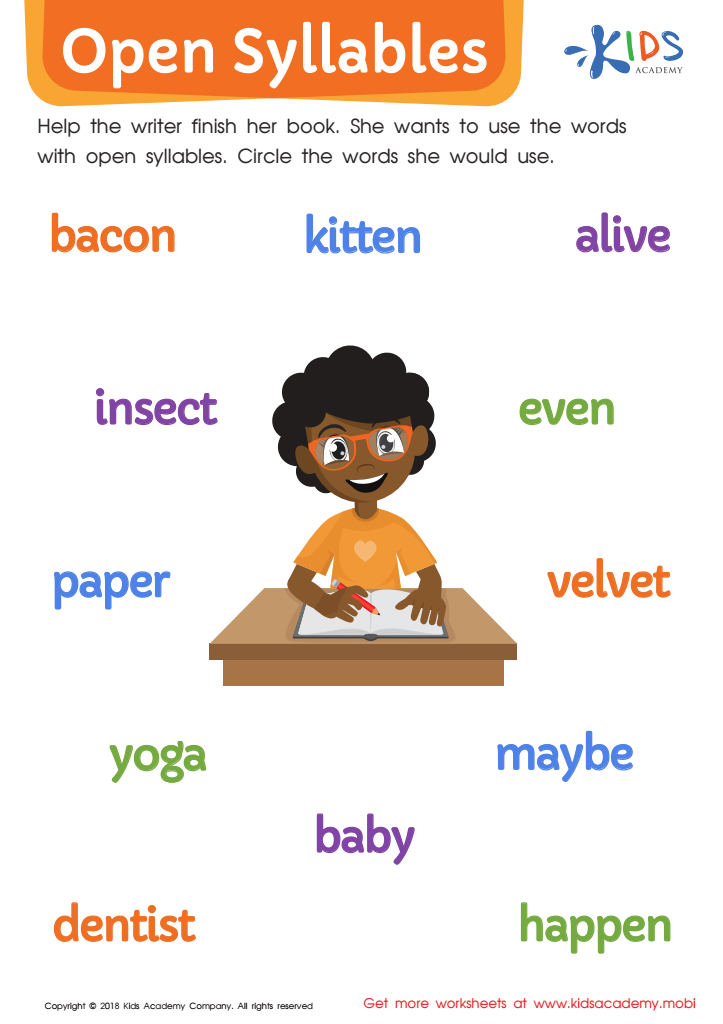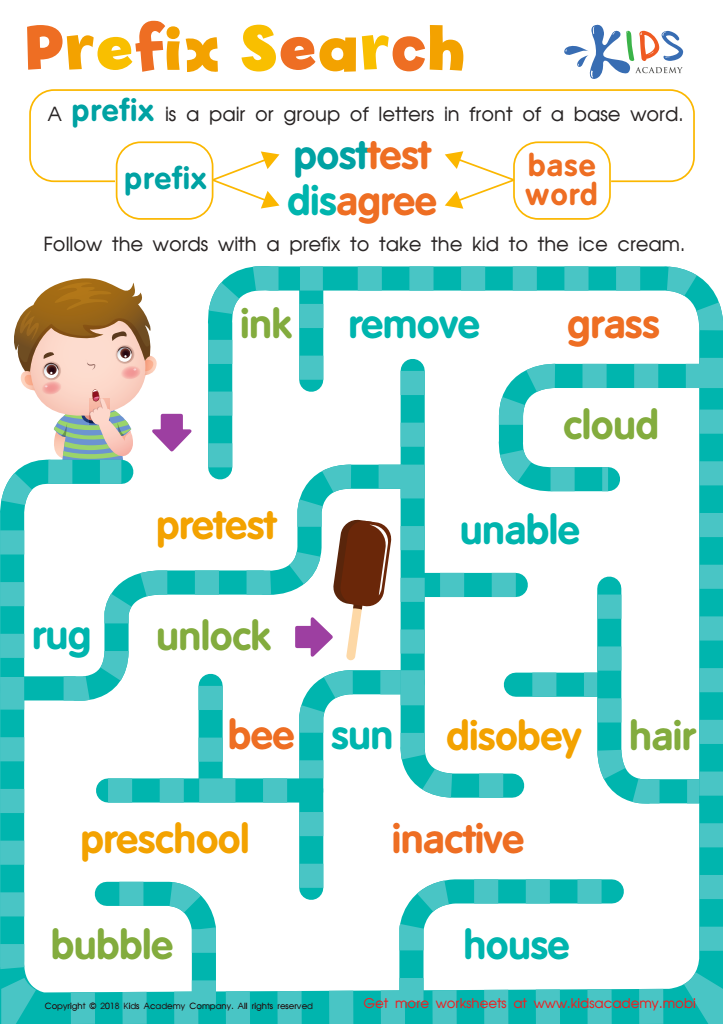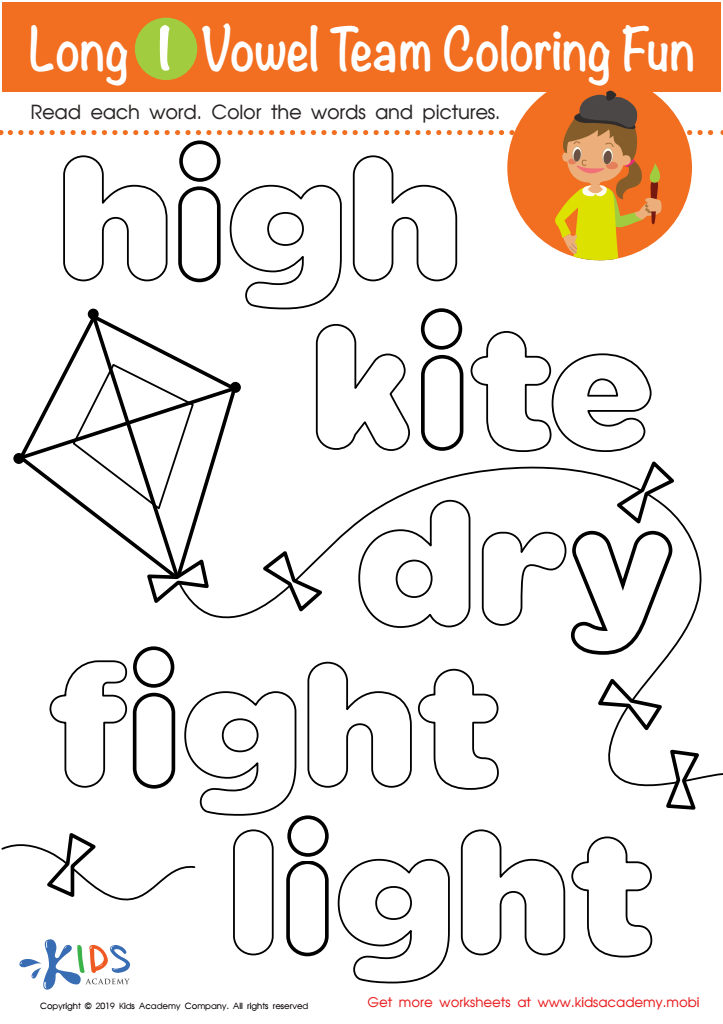Word identification Normal Phonics Worksheets for Ages 6-8
5 filtered results
-
From - To
Boost your child's reading skills with our Word Identification Normal Phonics Worksheets designed for ages 6-8. These vibrant, engaging, and expertly crafted sheets focus on essential phonics skills that are crucial for early readers. Our worksheets help kids identify and sound out words, enhancing their decoding abilities and vocabulary. Perfect for at-home practice or classroom use, each worksheet provides fun exercises that keep young learners motivated and eager to learn. Tailored to meet developmental milestones, these phonics worksheets ensure your child builds a strong foundation in reading, setting them up for academic success. Download and print them today!


Open Syllables Worksheet


Phonics and Word Recognition: Assessment 1 Worksheet


Reading: Prefix Search Worksheet


Long I Vowel Team Coloring Worksheet


Phonics and Word Recognition: Assessment 2 Worksheet
Word identification and normal phonics are foundational skills for children aged 6-8, forming the building blocks for lifelong literacy. During these formative years, children transition from simple decoding to fluent reading, making it crucial for both parents and teachers to emphasize these areas. Effective word identification helps kids recognize words quickly and accurately, enhancing reading speed and comprehension. When children can effortlessly identify words, they allocate more cognitive resources to understanding and enjoying the text.
Normal phonics instruction teaches the relationship between letters and sounds, an essential skill for decoding unfamiliar words. Mastery of phonics supports spelling by reinforcing the patterns and structures of written language. Early competency in these areas fosters confidence, making reading a pleasurable and less frustrating activity.
Supporting word identification and phonics also addresses educational equity. Children who lag in reading skills often face long-term academic challenges, impacting subjects beyond language arts. Parents and teachers should prioritize these skills to establish a strong educational foundation, ensuring that children are not only proficient readers but also primed for future academic and life success. Investing in these early literacy skills is key to developing enthusiastic, capable, and confident readers.
 Assign to My Students
Assign to My Students















